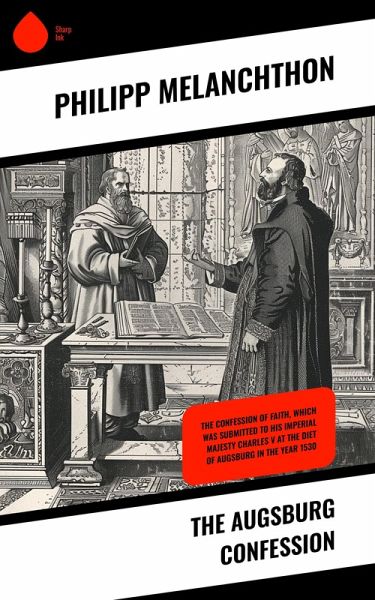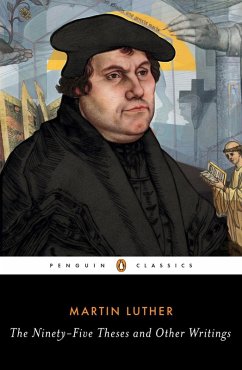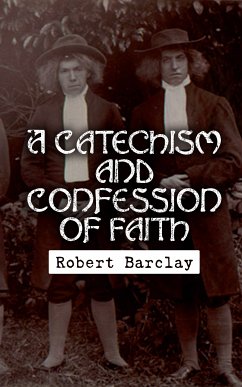
The Augsburg Confession (eBook, ePUB)
The confession of faith, which was submitted to His Imperial Majesty Charles V at the diet of Augsburg in the year 1530
Versandkostenfrei!
Sofort per Download lieferbar
2,13 €
inkl. MwSt.
Weitere Ausgaben:

PAYBACK Punkte
0 °P sammeln!
Philipp Melanchthon's "The Augsburg Confession" serves as a seminal document in the history of Protestant Reformation, articulating the core theological principles and ecclesiastical reforms sought by the reformers. Written in a clear, systematic style, Melanchthon addresses critical points of contention between the emerging Lutheran tradition and the Roman Catholic Church, emphasizing salvation by faith, scriptural authority, and the priesthood of all believers. The work is notable for its conciliatory tone, which aims to foster dialogue and understanding, while also firmly establishing the t...
Philipp Melanchthon's "The Augsburg Confession" serves as a seminal document in the history of Protestant Reformation, articulating the core theological principles and ecclesiastical reforms sought by the reformers. Written in a clear, systematic style, Melanchthon addresses critical points of contention between the emerging Lutheran tradition and the Roman Catholic Church, emphasizing salvation by faith, scriptural authority, and the priesthood of all believers. The work is notable for its conciliatory tone, which aims to foster dialogue and understanding, while also firmly establishing the theological distinctiveness of the Lutherans. As a pivotal text presented at the Diet of Augsburg in 1530, it reflects the intellectual currents of the early Reformation and the urgent desire for reform within Christendom. Philipp Melanchthon (1497-1560), often regarded as the "Preceptor of Germany," was a close associate of Martin Luther and an influential figure in the Reformation movement. His educational background in humanism and deep engagement with classical texts informed his theological writings, imbuing them with both scholarly rigor and spiritual depth. Melanchthon's capacity for synthesizing complex theological concepts into comprehensible forms made him a key architect of Protestant theology and a leading voice for reform ideals. For readers seeking insight into the theological foundations of Lutheranism and the broader Reformation landscape, "The Augsburg Confession" is an indispensable text. It invites not only scholars and theologians but also laypersons to engage with the transformative ideas that shaped modern Christianity. Melanchthon's articulate defense of faith and reform continues to resonate, making this work essential for understanding the interplay of faith, culture, and ecclesiastical change.
Dieser Download kann aus rechtlichen Gründen nur mit Rechnungsadresse in A, B, BG, CY, CZ, D, DK, EW, E, FIN, F, GR, HR, H, IRL, I, LT, L, LR, M, NL, PL, P, R, S, SLO, SK ausgeliefert werden.













